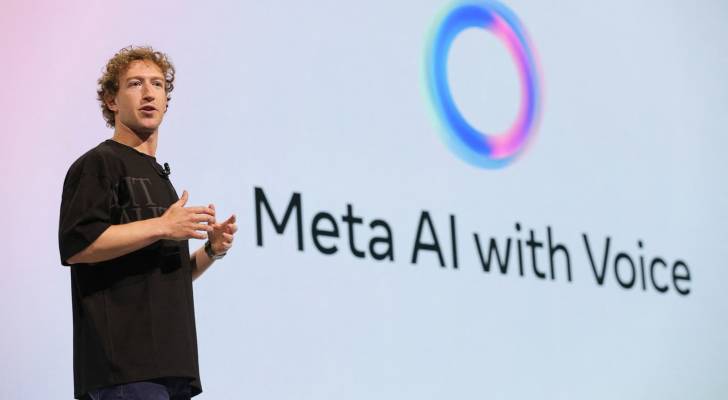(Credit: Reuters)
Meta expands AI model to US national security agencies
Meta recently made a significant policy shift, announcing on Monday that it would permit US national security agencies and defense contractors to utilize its open-source artificial intelligence model, Llama.
This move comes shortly after a report by Reuters revealing that a previous version of Llama had been used by researchers to create defense tools for China’s military.
Typically, Meta’s open-source AI models are off-limits for military, warfare, nuclear, or espionage-related applications. However, the company has decided to make an exception for US agencies, contractors, and allied national security organizations from the UK, Canada, Australia, and New Zealand, according to a Bloomberg report.
In a statement, Nick Clegg, Meta’s president of global affairs, defended the decision, emphasizing that using Llama responsibly would bolster US security and global AI leadership.
"These responsible uses of AI will not only contribute to the prosperity and security of the US but also help establish open-source AI standards globally," Clegg wrote on Meta’s blog.
Meta is opening Llama to a range of government contractors, including Amazon Web Services, Anduril, Booz Allen, Databricks, Deloitte, IBM, Leidos, Lockheed Martin, Microsoft, Oracle, Palantir, Scale AI, and Snowflake. This partnership aligns with the US government's broader goal of advancing its AI capabilities to stay ahead of global competitors, particularly China, which has been making substantial investments in AI development for national security purposes.
Clegg stated that "the widespread adoption of American open-source AI models serves both economic and security interests," adding that other countries, including China, are aggressively developing their own AI models to gain a competitive edge.
The US government has long expressed its desire to outpace other nations in AI technology, particularly for national security. This sentiment was reinforced last week when the White House released a memo outlining its plans to harness AI for national security objectives and accelerate AI procurement from the private sector.
While the defense sector’s reliance on AI has been longstanding, this move signals an intensifying race to secure cutting-edge AI capabilities. In 2018, Google faced employee backlash over its participation in Project Maven, a Pentagon initiative using AI to analyze drone footage.
Similar protests have erupted in the tech industry over collaborations with military entities, particularly concerning ties to the Israeli Occupation government. However, with the demand for advanced AI skyrocketing, tech companies are more eager than ever to pursue national security contracts, positioning themselves at the forefront of this global AI arms race.




